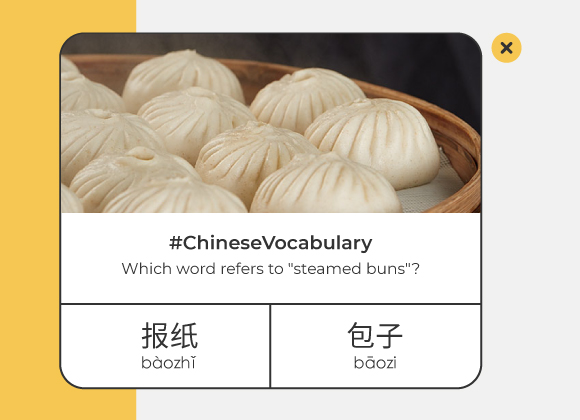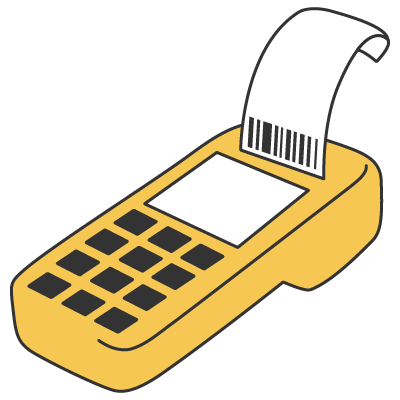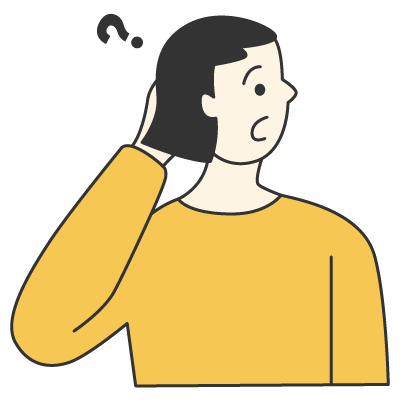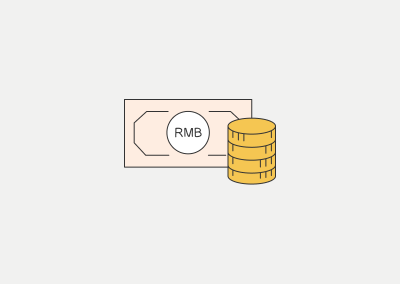10 Chinese Words with Similar Pronunciations (and How to Use Them Correctly)
Ever tried asking for something in a store in China only to receive something completely different? Tried to express yourself in Mandarin but were met with blank stares?
Many Chinese learners struggle with listening comprehension in Mandarin. One key reason is the challenge of distinguishing Chinese words with similar pronunciation. These confusing Mandarin words often Mandarin homophones or near-homophones can easily lead to misunderstandings. An effective way to improve your Chinese listening skills and speaking accuracy is to clearly understand Chinese word pronunciation and recognize their usage in context.
In this article we’ll explore 5 pairs of commonly used Mandarin words that sound alike but have different meanings, helping you build better pronunciation and fluency in your Chinese learning journey.
1. 买 (Mǎi) vs 卖 (Mài) Buy vs Sell in Chinese
These two Chinese words with similar pronunciation can be tricky for beginners. 买 (mǎi) and 卖 (mài) are spelled the same in pinyin but differ in tone 买 uses the third tone and means “to buy” in Mandarin, while 卖 uses the fourth tone and means “to sell” in Mandarin.
This is a great example of how Mandarin tones can completely change the meaning of a word. Mispronouncing the tone might lead to confusion especially in a real-life conversation like shopping or ordering something.
Examples
我想买一瓶水。
Wǒ xiǎng mǎi yī píng shuǐ.
I want to buy a bottle of water.
这里卖苹果吗?
Zhèlǐ mài píngguǒ ma?
Do you sell apples here?
Vocabulary
苹果 (píngguǒ) • apple(s)
2. 水饺 (Shuǐjiǎo) vs 睡觉 (Shuìjiào) Dumplings vs Sleep in Mandarin
This pair of Mandarin words that sound alike shows how important tones are in Chinese. The pinyin spelling for both words is very similar, but the tones make all the difference.
水饺 (shuǐjiǎo) with the third tone on both characters means Chinese “dumplings”, which is a popular food item in China. On the other hand 睡觉 (shuìjiào) with the fourth tone on both characters means “to sleep” or “go to bed”.
Getting the tones right is essential to avoid misunderstandings, especially when talking about food or daily routines. This example highlights common Chinese words with similar pronunciation that can confuse learners.
Examples

中国人喜欢吃水饺。
Zhōngguórén xǐhuan chī shuǐjiǎo.
Chinese people like eating dumplings.

我每天10点睡觉
Wǒ měitiān shí diǎn shuìjiào.
I go to bed at 10 every day.
3. 报纸 (Bàozhǐ) vs 包子 (Bāozi) Newspaper vs Steamed Buns in Mandarin
These two Chinese words with similar pronunciation can easily be confused especially by beginners. The first word 报纸 (bàozhǐ) means “newspaper” and the second word 包子 (bāozi) means “steamed buns”. The key difference is in the pronunciation of the second character 纸 (zhǐ) in 报纸 which has a tongue-rolling sound that is not needed in 子 (zǐ) of 包子.
Getting this subtle pronunciation right is important when ordering food or talking about everyday things. Otherwise you might end up with something you did not expect. This example shows how Mandarin tones and pronunciation affect meaning and communication.
Examples
Jason喜欢看报纸。
Jason xǐhuan kàn bàozhǐ.
Jason likes reading newspapers.
我要两个包子。
Wǒ yào liǎng gè bāozi.
I want two steamed buns.
4. 以为 (Yǐwéi) vs 因为 (Yīnwèi) – To Think vs Because in Mandarin
These two Mandarin words that sound alike are often confusing because they share the same second character 为, but with different tones.
The word 以为 (yǐwéi) means “to think wrongly” or “to assume incorrectly”, while 因为 (yīnwèi) means “because”. This is a common feature in Chinese where one character can have multiple pronunciations depending on the word context.
Understanding these subtle tone differences can help you avoid misunderstandings especially when explaining reasons or expressing opinions in Mandarin.
Examples
我以为他在开玩笑,但其实他是认真的。
Wǒ yǐwéi tā zài kāiwánxiào, dàn qíshí tā shì rènzhēn de.
I thought he was joking, but actually he was serious.
我想学中文,因为我喜欢中国。
Wǒ xiǎng xué Zhōngwén, yīnwèi wǒ xǐhuan Zhōngguó.
I want to learn Chinese because I like China.
Vocabulary
开玩笑 (kāiwánxiào) • to make a joke
其实 (qíshí) • actually
认真 (rènzhēn) • serious
5. 问 (Wèn) vs 吻 (Wěn) – To Ask vs To Kiss in Mandarin
These two Chinese words with similar pronunciation can easily cause confusion if the tones are not pronounced correctly.
The word 问 (wèn) with the fourth tone means “to ask” and is often followed by a question. On the other hand 吻 (wěn) with the third tone means “to kiss”.
Getting these tones right is important especially in conversations, where asking questions and expressing affection are involved. This example shows how critical Mandarin tones are to clear communication and avoiding awkward moments.
Examples
我可以问一个问题吗?
Wǒ kěyǐ wèn yī gè wèntí ma?
Can I ask a question?
Mike吻了Linda。
Mike wěn le Linda.
Mike kissed Linda.
Vocabulary
问题 (wèntí) • question
Take It further
Thank you for reading! We hope you learned more about Chinese words with similar pronunciation and how important tones are in Mandarin.
If you want to explore more about the peculiarities of the Chinese language check out our post on 10 Chinese words that may cause confusion for more helpful tips on improving your Chinese vocabulary and pronunciation skills.
FAQ: 10 Chinese Words with Similar Pronunciations (and How to Use Them Correctly)
01. Why do many Chinese words sound similar?
Many Chinese words share the same or similar pinyin spelling but differ in tones or slight pronunciation details. This is because Mandarin is a tonal language where tone changes the meaning of words.
02. How can I avoid confusing Chinese words with similar pronunciation?
Focus on learning and practicing tones carefully. Also pay attention to context and meaning Using example sentences helps improve understanding and correct usage.
03. Are tones the only difference between similar sounding Chinese words?
Mostly yes, but sometimes pronunciation nuances like tongue position or emphasis on certain sounds also make a difference.
04. How important is it to pronounce tones correctly in Mandarin?
Pronouncing tones correctly is very important. It can completely change the meaning of a word and affect communication especially in daily conversation.
05. Can learning words with similar pronunciation help improve my Mandarin?
Yes. Understanding and practicing these words can boost your listening skills speaking accuracy and overall fluency in Mandarin.
06. Where can I find more examples of confusing Chinese words?
You can check out language learning blogs, videos and resources focused on Mandarin pronunciation and vocabulary. Many sites offer lists of common homophones and tone pairs.













